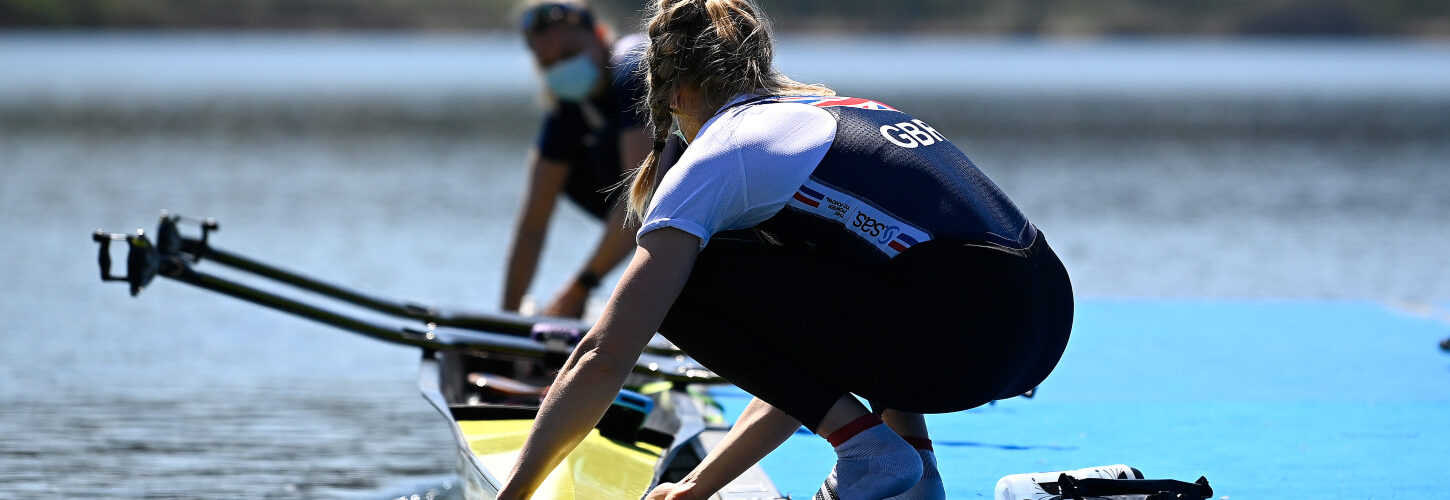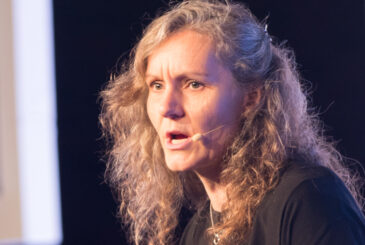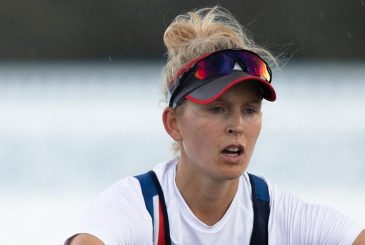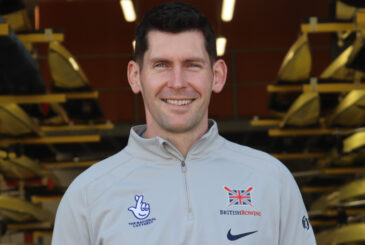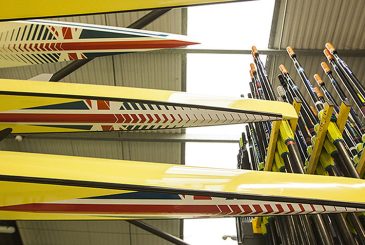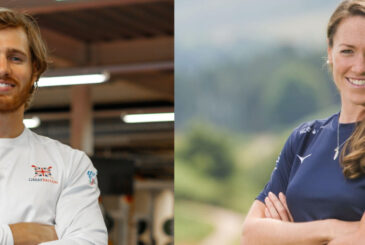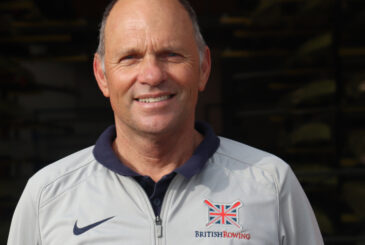As the world’s best rowers head to Lucerne for the next round of competition on the road to Tokyo, Martin Cross previews the action
Final Olympic Qualification Regatta
You get some idea that this is a competition like no other when you hear its nickname: ‘the regatta of death’. Just two crews in each boat class at the Final Olympic Qualification Regatta will win the right to secure a precious place in the Tokyo Olympics.
For the rest, their dreams of Olympic competition will be dashed. A boat’s performance on Lucerne’s Rotsee course represents the very last chance to make good on so much training, emotional energy and hard work. Hence the tension hanging over the regatta venue is of an intensity, unusual even in international rowing events.
Four British boats will travel to Lucerne to attempt to add their numbers to the ten British crews already qualified for Tokyo. They are the women’s double of Holly Nixon and Saskia Budgett; the men’s pair of Harry Glenister and Morgan Bolding, the men’s single of Matthew Haywood and the lightweight men’s double of Sam Mottram and Jamie Copus.
On paper, the women’s double seems to have the best chance of qualification. They are one of seven crews – four of them who they beat at the recent European championships, where Budgett and Nixon won a bronze medal. But danger lurks with the German double of Annekatrin Thiele – an Olympic champion from Rio and Leonie Menzel. Add to that both a decent Belarus double, who have yet to deliver on their potential, and a new Ukrainian boat, and there is more than a frisson of danger to keep the British crew on their toes.
Fourteen boats have entered the men’s pair and the British, who finished in seventh place at the Europeans will look to build on that encouraging performance. In Varese, Bolding and Glenister showed they have genuine pace – not least in the sprint for the line. They undoubtedly have what it takes to win a top two finish. But they will want to deliver a more even pace through their middle ‘k’.
Haywood’s first job is to get himself into the final – no mean task
The Dutch pair who finished two places above them in the Europeans are perhaps notional favourites to take the event. But there are some classy crews entered from outside of Europe that stand in the way of the British boat, most notably the US combination of Michael di Santo and Thomas Peszek.
Matthew Haywood will line up against 25 other scullers in the men’s singles and there are some stellar names in that field that have yet to qualify. Poland’s Natan Wegrzycki-Szymczyk, who took bronze in the Europeans stands out. But you could add to that list the likes of Trevor Jones of Canada, the former double U23 world champion and Romania’s Mihai Chiruta, who won the B final in the Europeans and finished a couple of places above Haywood. As such, Haywood’s first job is to get himself into the final – no mean task. Once the Nottingham Rowing Club sculler is among the top six, he will have the belief that he will be able to finish in the top two places.
The lightweight men’s double face another large field. Eighteen boats will contest this event, among them four crews who finished ahead of Copus and Mottram at the Europeans. However, the British had to deal with injury there and will hope for more speed in Lucerne. Add into that mix, fast entries from China, Australia and Canada and the scale of the challenge facing the British double is clear. Once more the British will be focused on making the final. If they manage that, they will have stepped on since Varese and have given themselves a chance.
World Cup II
Just four days after the Rotsee’s waters have settled, following the finals of the Olympic Qualification Regatta, some of the world’s best crews will take to the water for the second round of the 2021 World Cup series.
Among their number will be the three British boats that took gold in the recent European Championships. And while the entry at Lucerne will be pretty similar to that of Varese, the women’s pair, men’s four and men’s eight will nonetheless be so excited to race again. This regatta will be their last chance, before the Tokyo Games, to test their mettle against other international crews.
Helen Glover and Polly Swann will relish the chance to pit themselves against the Romanian and Spanish pairs who took silver and bronze behind them in Italy. The British were dominant in the first 1,500m but had to hang on to their first place in the sprint for the line. They will hope that an extra five weeks of training will have added to their endurance. A new Chinese pair will provide an extra test for Glover and Swann, as will an exciting Danish combination with the Olympic silver medal sculler Fie Udby Erichsen on board.
The men’s eights will be an event to savour with Britain, Germany and the Netherlands lining up in Lucerne
The men’s four, too, will face the two crews that took silver and bronze behind them in the Europeans. And it goes without saying that the Romanians and Italians will provide another stern test for the British boat. Add into the field a good South African four, fresh from the qualifiers, and there’s more than a hint of excitement to keep the British, led by stroke Sholto Carnegie, on their toes. However, Carnegie and his men were impressively dominant in Italy. If they turn out a similar performance, they should win another gold.
China provides the only new entry in the men’s eight. But this will be an event to savour with Britain, Germany and the Netherlands lining up in Lucerne. Arguably, both the Dutch and German boats under-performed in Varese.
Both crews will line up on the start with a clear expectation that they could beat the British.
Since the Europeans, the Germans have been working on their second half endurance, which the British so mercilessly exposed in the second thousand, while the Dutch will have come off the back of an intensive altitude training camp. This will be a race to look forward to, and if they perform like they did in Varese, the British will be hard to beat.
A podium finish would be a great result for Thornley
Victoria Thornley and the women’s lightweight double of Emily Craig and Imogen Grant will both face really stern tests if they want to defend the silver medals that they won in the Europeans. In the women’s single, Ireland’s double world champion Sanita Puspure is an obvious name that stands out, as does that of Kara Kohler from the USA, who took a world bronze ahead of Thornley in 2019. Hanna Prakhatsen of Russia who took a commanding gold in the Europeans also starts. A podium finish would be a great result for Thornley.
The lightweight double faces a fast French crew who took gold in the season’s first world cup, together with the Italians who won at the Europeans. The Dutch and the reunited Romanian combination – who took back-to-back golds at the world championships of 2017 and 2018 – will threaten the British. But Craig and Grant will head to Lucerne looking for a win.
The men’s double of Graeme Thomas and John Collins face a stellar field. The contest between China’s 2019 world champions and the French who won gold at the first World Cup will be one to savour. But this will be just the test that the British will relish as they fight for another podium place.
The women’s four – who like Thomas and Collins took bronze in Varese – face the Irish and Dutch who won silver and gold. This will be another opportunity for the British to work on their pace through the middle thousand.
The women’s eight will go head-to-head in a clash with China – the only other boat entered, while the men’s quad, who finished fifth in Varese, will face another very strong field. The clash between the European gold and silver medallists from Italy and the Netherlands will be one to relish. In the absence of European bronze medalists, Estonia, the British will be looking to grab a podium place.
Photo: Getty Images


